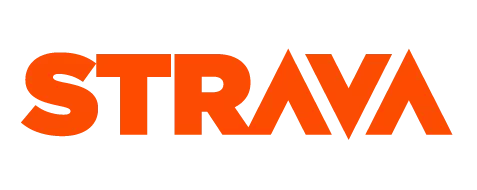As a running, triathlon or endurance coach, it is important to understand the common mistakes that athletes often make if they decide not to hire a coach. This knowledge can help you become a more effective coach, as you can develop strategies and techniques to help your clients avoid these mistakes and achieve their goals faster. Understanding these mistakes can also help you market yourself to potential clients, as you can position yourself as an expert who can help athletes avoid these common pitfalls and achieve success in their training and competition. You can even take these mistakes and use them directly in your website, and marketing copy to make your messaging more effective.
Let’s dig in;
Improved Awareness and Proactivity
Sometimes mistakes are made by athletes regardless of whether or not hey have a coach, no coach is perfect and depending of your level of experience may have a number of blind spots. By being proactive and understanding the mistakes that uncoached athletes often make, coaches can develop strategies and techniques to help their clients avoid these mistakes and achieve their goals. This can help coaches become more effective at helping their clients achieve success in their training and competition.
Better Results
By understanding the mistakes that athletes often make after they decide not to hire a coach, coaches can better position themselves as experts in the field and increase their appeal to potential clients. This can lead to greater success as a coach. Additionally by helping clients avoid common mistakes, coaches can improve outcomes and help clients achieve better results in their training and competition. This can lead to greater satisfaction and success for clients, as well as increased business for coaches.
Engaging Content
The mistakes athletes make is perfect material for creating engaging and valuable content to share with your existing clients and wider audience to build trust and authority. You could create a comprehensive piece of content like a blog, video, email or podcast episode dedicated to just one of the common mistakes athletes make. You could cover the reasons why athletes make the mistakes and how they can avoid them. You can read more about why it’s important to build trust and authority and how to structure it here. Create a list of all the mistakes somewhere and next time you have time to create some content just start with the next one on the list.
Better Marketing
Understanding the mistakes that athletes make can be a powerful tool for coaches when it comes to writing marketing copy. By identifying and addressing these common mistakes in your marketing materials, you can more effectively convince potential clients to work with you as a coach. For example, if you have identified that one of the common mistakes that athletes make after deciding not to hire a coach is a lack of structure or guidance in their training, you can use this information to write marketing copy that emphasizes the importance of having a structured training plan and the benefits of working with a coach to develop a personalized plan. Additionally, understanding the mistakes can also help you write marketing copy that addresses specific concerns or objections that potential clients may have. For example, if you have identified that many athletes who decide not to hire a coach struggle with motivation or accountability, you can use your marketing copy to explain how a coach can provide motivation and accountability to help athletes stay on track and achieve their goals. By using the mistakes that athletes often make after deciding not to hire a coach in your marketing copy, you can create more compelling and persuasive materials that can help you attract new clients and grow your coaching business.
Overall, understanding the mistakes that athletes often make can be beneficial for coaches in terms of improving their coaching skills, enhancing client satisfaction and outcomes, and attracting new clients with more effective marketing.
Examples
To help get you started here are just a few of the common mistakes athletes make. I’m sure you’ve seen a bunch more as well.
- Not following a proper training plan: A coach can help an athlete develop a tailored training plan that takes into account their individual goals, abilities, and needs. Without a coach, an athlete may not have a structured plan to follow and may be more likely to overtrain or undertrain.
- Skipping warm-up and cool-down: A coach can help an athlete understand the importance of proper warm-up and cool-down and can provide guidance on how to properly perform these essential steps. Without a coach, an athlete may be more likely to skip these important aspects of their training.
- Not listening to their body: A coach can help an athlete learn to listen to their body and adjust their training accordingly. Without a coach, an athlete may be more likely to ignore warning signs of injury or overtraining and may be more likely to push themselves too hard.
- Neglecting strength training: A coach can help an athlete understand the importance of strength training and can provide guidance on how to properly incorporate it into their training regimen. Without a coach, an athlete may be more likely to overlook this aspect of their training.
- Not fueling properly: A coach can provide guidance on proper nutrition for athletes, including how to fuel before, during, and after workouts. Without a coach, an athlete may be more likely to make poor nutrition choices that can impact their performance and health.
- Not wearing proper footwear: A coach can help an athlete select the right shoes for their foot type and running style, which is essential for preventing injuries and improving performance. Without a coach, an athlete may be more likely to choose shoes that do not provide the necessary support and cushioning.
- Not properly assessing their fitness level: A coach can help an athlete assess their fitness level and establish appropriate goals based on this assessment. Without a coach, an athlete may be more likely to set unrealistic goals or to underestimate their abilities, which can lead to frustration and disappointment.
- Not adequately progressing their training: A coach can help an athlete gradually and safely increase the intensity and volume of their training over time. Without a coach, an athlete may be more likely to increase their training too quickly, which can increase the risk of injury.
- Not cross-training: A coach can help an athlete understand the benefits of cross-training and can provide guidance on how to incorporate other types of exercise into their training regimen. Without a coach, an athlete may be more likely to focus solely on their main sport and miss out on the benefits of cross-training.
- Not dealing with mental obstacles: A coach can help an athlete develop strategies for dealing with mental obstacles such as lack of motivation, self-doubt, and negative self-talk. Without a coach, an athlete may be more likely to struggle with these mental challenges and may be less
What Next?
Now we know how important it is to understand the mistakes athletes make, take the time to write a few blogs, social posts or even create some podcast episodes. Review your website and social media copy and adjust it to include how your coaching can help athletes avoid these common mistakes.
If you don’t have time right now to craft the content, at least create a spreadsheet or list with these reasons and any more you can think of. When you next have the time to do some marketing or write some content start with the first mistake on your list and go from there.
Take our Free "Authentic" Marketing Course for Coaches
Designed for endurance sport coaches. Marketing doesn't need to be pushy. The best marketing simply creates a win-win relationship between you and your customers. Take the simple 6 part course to learn more.













